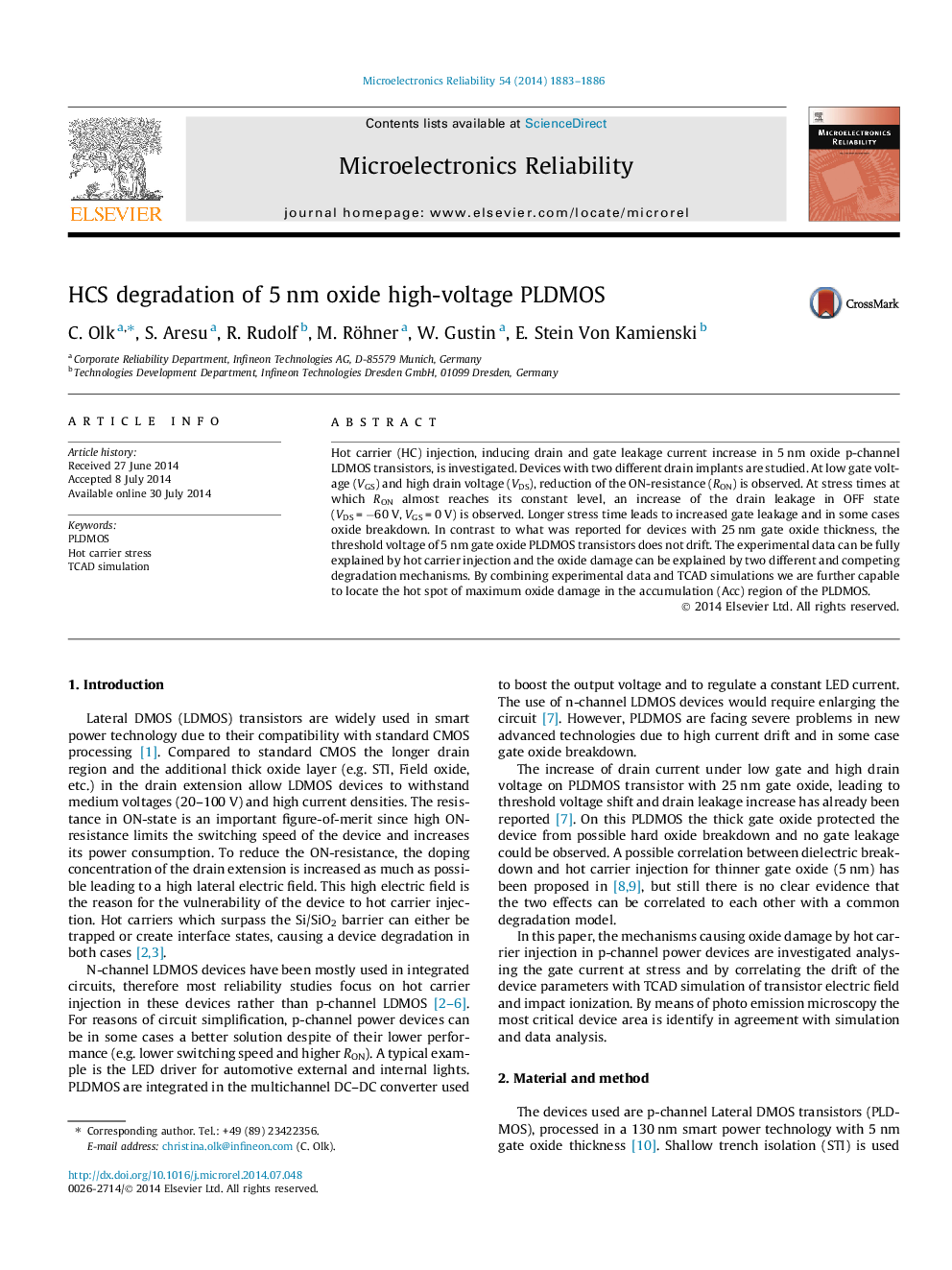| Article ID | Journal | Published Year | Pages | File Type |
|---|---|---|---|---|
| 6946868 | Microelectronics Reliability | 2014 | 4 Pages |
Abstract
Hot carrier (HC) injection, inducing drain and gate leakage current increase in 5Â nm oxide p-channel LDMOS transistors, is investigated. Devices with two different drain implants are studied. At low gate voltage (VGS) and high drain voltage (VDS), reduction of the ON-resistance (RON) is observed. At stress times at which RON almost reaches its constant level, an increase of the drain leakage in OFF state (VDSÂ =Â â60Â V, VGSÂ =Â 0Â V) is observed. Longer stress time leads to increased gate leakage and in some cases oxide breakdown. In contrast to what was reported for devices with 25Â nm gate oxide thickness, the threshold voltage of 5Â nm gate oxide PLDMOS transistors does not drift. The experimental data can be fully explained by hot carrier injection and the oxide damage can be explained by two different and competing degradation mechanisms. By combining experimental data and TCAD simulations we are further capable to locate the hot spot of maximum oxide damage in the accumulation (Acc) region of the PLDMOS.
Keywords
Related Topics
Physical Sciences and Engineering
Computer Science
Hardware and Architecture
Authors
C. Olk, S. Aresu, R. Rudolf, M. Röhner, W. Gustin, E. Stein Von Kamienski,
